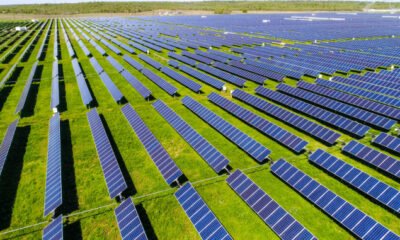2025 Alliance for Responsible Citizenship Conference
David Blackmon: Trump’s Energy Secretary Sounds Alarm on Globalists’ Green Energy Madness

During a recent presentation at the 2025 Alliance for Responsible Citizenship (ARC) Conference in London, U.S. Secretary of Energy Chris Wright made waves by declaring that achieving “net zero by 2050” is a “sinister goal.”
This statement resonates particularly in the UK, where both the Conservative and Labour parties have ardently pursued net zero policies, often ignoring the consequences faced by citizens. Despite the economic hardships entailed, UK leaders remain committed to these ambitious targets.
Wright criticized net zero as “unachievable by any practical means” and pointed out that the campaign has incurred significant costs without yielding tangible benefits. Notably, the UK has seen severe deindustrialization, with arable lands being repurposed for large wind and solar projects, raising concerns about economic viability.
A recent landmark incident highlights this issue: Tata Steel shuttered the last steel mill in the UK in September. Labour politicians celebrated the reduction in carbon emissions, but the reality is stark. The vital manufacturing of steel will simply shift overseas, often to countries with lax environmental standards, resulting in higher global emissions.
Wright emphasized, “This is not energy transition. This is lunacy,” a sentiment that mirrors broader concerns regarding the practical implications of deindustrialization policies.
Meanwhile, a report from the Center for Research on Energy and Clean Air (CREA) indicated that new coal-fired power plants in China reached a ten-year high in 2024, with 66.7 gigawatts of new capacity approved. This increase counters the prevailing narrative that China is rapidly transitioning to renewable energy.
China’s coal expansion underscores a troubling contradiction: while Western nations deindustrialize in pursuit of climate agendas, they inadvertently fuel coal-driven growth in Asia. The demand for cheap and reliable power remains paramount for heavy industries, particularly steel manufacturing, which necessitates a consistent energy supply.
As Western countries decimate their industrial bases, they risk becoming dependent on imports, jeopardizing not only their economies but also their energy security. If the UK continues on this trajectory, it may soon face severe shortages in both food and essential goods, sacrificed to fulfill an ideology rooted in climate fervor.
The situation raises critical questions about sustainable development and the future of industrial policy in Western nations amid the climate crisis debate.
Originally published by the Daily Caller News Foundation.
David Blackmon is an experienced energy writer and consultant based in Texas, with a 40-year background in the oil and gas sector, focusing on public policy and communications.

















